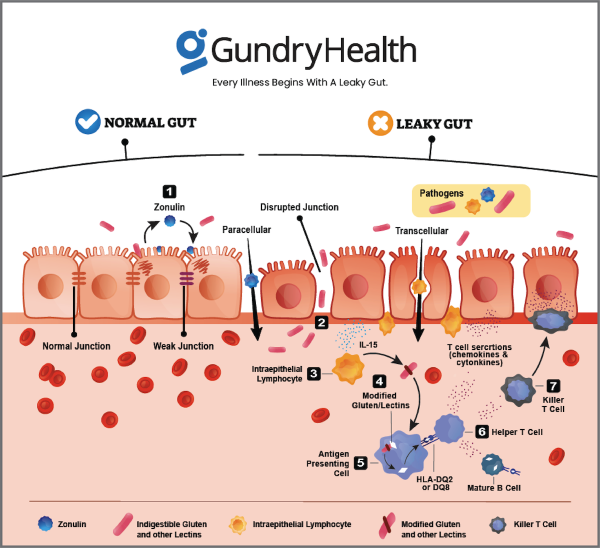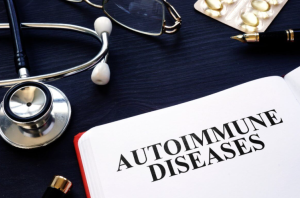Unraveling Mold Toxicity: How Gundry Health Takes a Holistic Approach to Treating Symptoms
Exposure to mold can have serious health consequences and may leave you feeling uneasy. While it’s a common plotline on medical shows, it’s not something anyone wants to experience firsthand. Fortunately, identifying the symptoms of mold and toxic mold exposure can help you combat the issue.
Mold-related health problems affect numerous people each year, but they’re often misdiagnosed, undiagnosed, or untreated in conventional medicine. Gundry Health takes a science-based and holistic approach to diagnosing and treating mold toxicity symptoms, so let’s delve into what mold toxicity really means and how to address it.
Understanding Mold Toxicity: Causes, Symptoms, and Treatment at Gundry Health
Mold is a fungus that thrives in damp environments and can cause health issues, especially for those allergic or sensitive to the mycotoxins it releases. Exposure to excessive amounts of mold or certain types of mold can result in mold toxicity, a condition that often goes undiagnosed or misdiagnosed in conventional medicine. According to experts at Gundry Health, the broad range of symptoms that mold toxicity can cause is often difficult to describe and diagnose.
Mold Toxicity Symptoms: A Guide to Recognizing the Signs
If you’re exposed to mold, it can lead to a condition called mold toxicity, which can cause a range of symptoms that can be hard to identify. Symptoms can be divided into two main categories:
- Immune reaction to mold: allergy-like symptoms such as sinus issues, runny nose, itchy skin and eyes, asthma, shortness of breath, and more.
- Chemical and inflammatory reaction to mold: driven by mycotoxins, it can create symptoms that are vague, broad, and hard to pin down, such as cognitive difficulties, pain, unexplained weight gain or weight loss, numbness and tingling in extremities or other areas of the body, metallic taste in the mouth, vertigo or dizziness, tinnitus, digestive issues, significant fatigue, changes in mood, excessive thirst and dehydration, bed-wetting in children, and symptoms that resemble hormone imbalances.
According to experts, the symptoms of mycotoxin-induced illness can vary and have no pattern, and they are not unique to this illness, which means they can easily be mistaken for something else. If you suspect that you have been exposed to mold, it’s essential to recognize these symptoms and seek medical attention from a trusted healthcare provider like Gundry Health.
Mold Issues: Why are they difficult to diagnose?
Conventional medicine does not recognize the chemical and inflammatory reaction caused by mycotoxins emitted by some species of indoor mold
- There is no gold standard in testing for mold
- There is no standardized treatment protocol or drug for mold toxicity
- There are limited human-based studies on the connection between mycotoxins and human health
- The presentation of mold issues is different among patients
- Not everyone exposed to mold mycotoxins will have a reaction to them
All of these factors make mold illness a challenge to diagnose. However, holistic medicine providers, such as those at Gundry Health, consider environmental factors that affect health when evaluating patients and may have additional advanced training in treating mold toxicity. According to experts, one of the biggest challenges with mold is that mycotoxins can cause only some people to launch an inflammatory response, which can continue for years after long-term exposure in a susceptible individual.
Testing for Toxic Mold Exposure: What You Need to Know
Mold toxicity can cause a wide range of symptoms that can be hard to describe and even harder to diagnose. However, testing is typically the first step. To start, you can take an at-home test and arrange for a certified mold inspector to evaluate your home. However, these tests have some major drawbacks, including false negatives and false positives that are common, and they aren’t covered by insurance.
The most direct way to test for mold toxicity is through a urine test that measures for metabolites of mold and mycotoxins, as well as glutathione levels. However, this test isn’t foolproof. False negatives are possible, and the levels found on tests don’t necessarily correlate with the severity of symptoms. That’s why it’s essential to have a clinician who is willing and able to do some extra investigation into symptoms of mold and toxic mold exposure.
In conclusion, mold tests have their limitations, and there’s no one definitive way to diagnose mycotoxin illness. However, with the help of a knowledgeable clinician, at-home tests and inspections can be useful tools in identifying toxic mold exposure.
How to Treat Mold Toxicity Symptoms: Lifestyle Changes to Support Immune Health
If you suspect mold toxicity, the first step is to eliminate exposure to both environmental and dietary sources of mold. While killing mold is important, it’s not the only focus when it comes to treating mold toxicity symptoms. Addressing sinus health, starting a neural retraining program, lowering inflammation, and optimizing detoxification are also key to supporting immune health. Supplements like glutathione, N-acetylcysteine (NAC), charcoal, and bitter greens can help support the liver’s ability to eliminate toxins. While there’s still much to learn about mold toxicity, knowledgeable doctors are available to provide science-backed lifestyle changes to help you feel your best.
- Lifestyle Changes and Neural Retraining Key in Addressing Mold Toxicity Symptoms
- Eliminate Exposure: Reducing Mold Burden on the Body
- Address Sinus Health: Collaborating with ENT Doctors and Improving Gut Health
- Neural Retraining Program: Retraining Neural Pathways to Promote Healing
- Lower Inflammation: Anti-inflammatory Diet and Daily Stress Management
- Optimize Detoxification: Supporting the Body’s Ability to Bind to and Eliminate Toxins
- Importance of Patience and Persistence in Treating Mold Toxicity Symptoms
- Knowledgeable Doctors Ready to Provide Science-Backed Action Plan for Addressing Mold Toxicity Symptoms.







